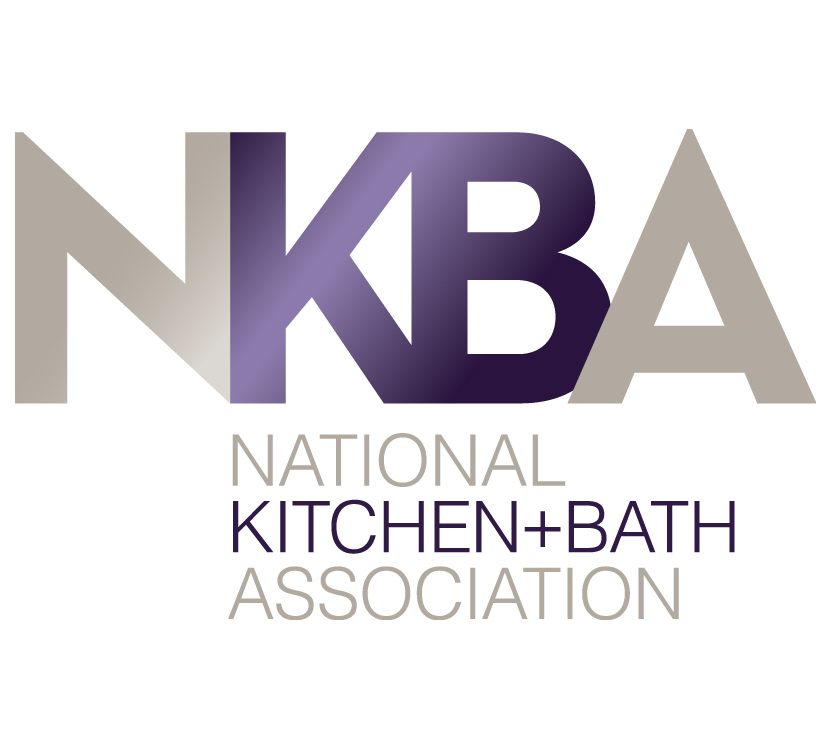General
Do I need an appointment to visit your showroom?
You are welcome to visit our showrooms at your convenience. No prior appointments are needed.
Can I buy directly from you?
We do not sell select products to homeowners. However, we will happily help you select the slabs of your choice and work with a fabricator of your choice.
Can I buy my tile directly from you?
Yes, you can buy tile and sinks directly from your nearest Cosmos SurfacesTM location.
Are all your products in stock?
Yes, we stock all of our products but the availability at each location varies. Please contact your nearest location for availability.
Does Cosmos provide design services?
We do not provide design services currently.
How many slabs should I buy?
Depending on the areas you are looking to renovate/ build, your fabricator would be able to tell you the number of slabs you would need.
Can I select the slabs for my house?
Absolutely! Natural stone varies from slab to slab so, we encourage every customer to come in and hand select the slabs for their home.
Can I get a product sample?
Yes, we are happy to provide you with samples when available to help you in the design process.
What is the best stone color to use around a fireplace?
The best color for your home depends on your personality, preference and the look you are trying to achieve. As a general guideline,
- light stones reflect light making a room appear bigger and brighter while dark stones absorb light making a room appear smaller and more intimate.
- However, using a dark stone or a stone with a lot of drama on 1 wall in a well-lit area or a light-colored room, will help attract focus and highlight the wall.
What does a sealer do?
A sealer attaches to the surface of the stone and protects it from staining, scratching and losing shine.
What is an impregnator sealer? How does it work?
An Impregnator sealer penetrates the surface of the stone and forms permanent bonds to protect the stone against staining, scratching and loosing shine.
Do I need to seal porcelain tiles?
Porcelain slabs/ tiles need not be sealed. Sealing the grout or using pre-sealed grout is recommended.
Do I need to seal my marble countertop?
Marble and all natural stones must be sealed to help preserve the finish and protect against staining and etching. Not sealing the stone will leave the stone susceptible to discoloration, staining and etching over time.
How often do I need to seal my marble counters?
The frequency depends on multiple factors like how often you use the counter, what products the counter is exposed to and how often. Marble counters will need to be sealed more often (every 6-9 months) compared to other stone types due to their porosity. There are no pre-defined timelines but, your fabricator/ builder will be able to guide you better or refer to the instructions provided by the sealer brand.
Will I see seams on my countertop?
Seams are inevitable depending on the size of your countertop. It’s best to speak with your fabricator about the layout and seam size before starting the job.
Natural Stone
What types of Natural Stone do you carry?
Cosmos offers a huge variety of Natural Stones. Click Granite, Marble, Quartzite, Onyx, Schist, Soap Stone or Semi-Precious to see our natural stone offerings.
Why is granite the most used stone type in kitchens?
Kitchen and bar counters are commonly exposed to liquids like water, milk, juices, wine or other alcohol, acidic substances like citrus vegetables, some fruits, acetic acid as well as sharp utensils, all of which can damage any countertop. However, Granite is one of the strongest and most dense stones in nature with high tolerance to heat and tension due to which it is resistant to etching, staining and absorption making it one of the top choices for use in kitchens and bars. Click Granite to see our huge collection of this Natural Stone.
Why are some stones so expensive?
Stone prices vary largely, and this is mostly to do with the location and size of the stone quarries. Remote or smaller quarries mean that they are harder to get to and harder to quarry which leads to a scarcity of product and surge in pricing. Other factors could be the mineral content in the stone and the cost of logistics in bringing the product to you.
What are the advantages of using natural stone in my home?
Natural stone products are one of kind and highly distinctive so, you would own something unique and very you. Natural stones are eco-friendly and release no harmful chemicals into nature during their lifecycle. They are low on maintenance, durable and awe-inspiring. Click Natural Stone to see our collection.
What is the best stone color to use around a fireplace?
The best color for your home depends on your personality, preference and the look you are trying to achieve. As a general guideline,
- light stones reflect light making a room appear bigger and brighter while dark stones absorb light making a room appear smaller and more intimate.
- However, using a dark stone or a stone with a lot of drama on 1 wall in a well-lit area or a light-colored room, will help attract focus and highlight the wall.
Do you have honed granite?
Yes! We offer 3 finishes in natural stone – Polished, Honed and leathered. All products will not be available in all finishes, please contact the nearest location for availability.
What are the different stone finished you offer?
We commonly offer 3 finishes in natural stone – polished, honed and leathered (LF)
What does honed and LF mean?
We offer 3 finishes on natural stones – Polish, Hone and Leather.
- Polish – This finish is glossy, shiny and reflective in some cases like metal or mirror.
- Hone – This finish is reminiscent of a matte surface. It is smooth and soft without a shine and easy to maintain.
- Leather – This finish has texture and depth to it and adds character to a space when used correctly. This finish is also the best for slip resistance and outdoor use.
Should I be worried about Radon emissions from granite?
No. Studies have shown that the radon gas emission levels from granites are too low to bear a significant threat to the health and wellbeing of people. For more information, refer to these articles (https://www.naturalstoneinstitute.org/default/assets/File/consumers/graniteandradon1995.pdf) and (https://www.naturalstoneinstitute.org/consumers/radon/) published by the Marble Institute of America.
What products can I use to clean my granite countertop?
Check out our Care and Maintenance guides under the Resources section.
What is the difference between Natural Stone tile and Ceramic / Porcelain tile?
The major difference between the two products is that ceramic/ porcelain tile is a manufactured product while natural stone tile is made from stone quarried from the earth. Ceramic/ Porcelain tiles are also easier to maintain than natural stone tiles.
Where can I use natural stone in my house?
Natural stone can be used in numerous applications, both on the interior and exterior of your home. They can be used as counter tops in kitchens, bars, laundry rooms, vanity tops in bathrooms, tabletops, flooring, walkways, building facades, interior wall cladding, fireplace surrounds, accent walls, stairs – landings and risers, patios, etc.
Can I use marble in my kitchen?
Marble is commonly used in kitchens despite the criticism this Natural Stone receives. Marbles are beautiful and elegant stone pieces that can be used in kitchens. With proper care and maintenance, they’ll serve you well.
How do I know if a stone is really a Marble?
There are simple tests such as those described in this article to determine if a stone is marble or otherwise. If you have further questions on a specific stone, please chat with us or write to us through the Contact Page.
Do I need to seal my marble countertop?
Marble and all natural stones must be sealed to help preserve the finish and protect against staining and etching. Not sealing the stone will leave the stone susceptible to discoloration, staining and etching over time.
How often do I need to seal my marble counters?
The frequency depends on multiple factors like how often you use the counter, what products the counter is exposed to and how often. Marble counters will need to be sealed more often (every 6-9 months) compared to other stone types due to their porosity. There are no pre-defined timelines but, your fabricator/ builder will be able to guide you better or refer to the instructions provided by the sealer brand.
Will I see seams on my countertop?
Seams are inevitable depending on the size of your countertop. It’s best to speak with your fabricator about the layout and seam size before starting the job.
Can we get a marble look in other materials?
What is the difference between Quartz and Quartzite?
Quartz is a manufactured product designed to emulate natural stone or other surfaces whereas, Quartzite is a natural stone found in the Earth’s crust. This article does a great job at comparing the 2 products.
Quartz
What is Quartz?
Quartz is the second most abundant and naturally occurring mineral found in the Earth’s Crust. Quartz is also the fourth hardest mineral known to man.
What is the difference between Quartz and Quartzite?
Quartz is a manufactured product designed to emulate natural stone or other surfaces whereas, Quartzite is a natural stone found in the Earth’s crust. This article does a great job at comparing the 2 products.
Do I need to seal my Cosmos Quartz counters?
Cosmos Quartz counters do not require to be sealed.
Does Cosmos Quartz come with a warranty?
Yes, your Cosmos Quartz purchase is covered with an industry leading 10-year product warranty.
Will Cosmos Quart have variation in color from sampling?
Yes, color variation is intended and designed into many colors to enhance the aesthetic quality. Samples are small select cuts from a slab and may not exhibit all the characteristics of a design. Cosmos highly recommends hand selecting your Cosmos Quartz slabs prior to project confirmation.
I have Cosmos quartz on my kitchen counters and need to redo my island now. Would you have the same color available now?
Cosmos makes every effort to maintain a consistent pallet but, our collections do change depending on trends and seasonality. While there is a high chance that we will have the same product in stock, please note that it is normal to have slight variations in the background color and vein patterns between production lots. We will make every effort to get you the closest match. Please contact your nearest location and we will be happy to help you out.
Can I cut directly on Cosmos Quartz?
No, you will ruin your knives. Quartz is much harder than steel and should not be used as a cutting surface. You must use a cutting board that is appropriate for your cutting tools.
What maintenance is required for Cosmos Quartz?
Cosmos Quartz needs very little maintenance. Refer to our Cosmos Quartz Care and Maintenance Guide for details.
Do I need to seal Cosmos Quartz counters?
Cosmos Quartz counters do not require to be sealed.
What slab sized and thicknesses are available?
Cosmos Quartz slabs come in Jumbo (126” x 63”) and Super Jumbo (135” x75”) sizes in ¾” and 1 ¼” thicknesses.
Where can I use Cosmos Quartz in my project?
Cosmos Quartz can be used for any indoor application such as kitchen countertops, backsplash, bathroom vanities, shower walls, service counters, desks, flooring, etc.
Is Cosmos Quartz heat resistant?
Yes, Cosmos Quartz is highly heat resistant but, NOT heat proof.
Can I use hot pots directly on the surface?
No, you must use a trivet or hot pad to ensure protection for any countertop surface from heated cookware. You cannot put hot pots directly on the surface. No countertop material is completely unaffected by direct heat.
Is Cosmos Quartz food friendly?
Yes, Cosmos Quartz is non-porous, creating the ideal surface for hygienic food preparation and if properly cleaned it is virtually bacteria free.
Why Cosmos Quartz?
This is our favorite question of all time and there are 3 reasons we’d like to focus on:
- Quality- Our product is supreme. Compare Cosmos Quartz side by side to any other brand and we are sure that you will agree. We pay the utmost care in choosing our suppliers and scrutinizing their manufacturing processes to make sure that we provide only the best to our customers.
- Service- Cosmos Quartz is distributed only through company distribution facilities covering the entire US mainland. Backed by our international parent Company, Cosmos Quartz has the luxury of matching and manufacturing just about any quartz selection and successfully completing any cut-to-size project.
- Price- After reviewing our product quality, warranty, large slab size and service level, compare Cosmos Quartz’ price to any other reputable Quartz brand and you will know that we play fair. We love to see our customers realize their dreams without breaking the bank!
Tile
What are ceramic tiles?
Ceramic tiles are created from natural materials extracted from the earth, that are shaped into tiles and then fired in kilns at extremely high temperatures.
What are porcelain tiles?
Porcelain tiles are made up of 50% feldspar and are fired at a much higher temperatures than regular ceramic tiles. This makes porcelain tile harder and denser than other tile products. Because of its highly durable make-up, porcelain tile is more resistant to scratches and can withstand temperature extremes. Also, because porcelain is non-porous, it is very stain resistant, has very low water absorption ratings (Less than 0.5%) and can be used for interior and exterior applications as well as heavy-use and commercial areas.
What is the difference between porcelain and ceramic tiles?
The major difference between Ceramic tiles and Porcelain tiles is in the way they are manufactured. Porcelain tiles are fired at temperatures higher than 1200 degrees Celsius resulting in a product that is superior in properties like chip and break resistance, stain resistance, and extremely low water absorption (less than 0.5%). Due to these enhanced properties, porcelain tiles and slabs can be used in showers, swimming pools, building facades and more.
What is the difference between Natural Stone tile and Ceramic / Porcelain tile?
The major difference between the two products is that a ceramic/ porcelain tile is a manufactured product while natural stone tile is made from natural stone quarried from the earth. Ceramic/ Porcelain tiles are also easier to maintain than natural stone tiles.
Are ceramic tiles durable?
Ceramic tile durability depends on the installation. Usually following the manufacturer’s instructions is the best thing to do.
Can ceramic tiles be used outside?
For any tile to be used, it is recommended that they have an extremely low water absorption rate – less than 0.5% and be rated by the manufacturer for outdoor use.
What are through body tiles?
Unglazed porcelain tiles are a solid color all the way through the tile body and do not have a top glaze. These tiles are generally referred to as through body or full body tiles. They are typically denser and more durable than glazed tiles and also have good slip resistance. However, they do need to be sealed to avoid staining. These tiles are especially good for high traffic areas due to their ability to withstand wear and tear.
What is the difference between glazed and through body tiles?
- The major difference between the two types of tiles is in their ability to hide/ cover wear over time.
- In Glazed tiles, the glaze is baked into the top surface of the clay where the color of the glaze is usually different from the color of the clay. Due to this color difference, any chips or breakages to the top of the tile will stand out.
- Through body tiles on the other hand, do not have a glaze and the same color runs through the body of the tile making it more resilient to wear over time.
What is rectified tile?
Rectified tiles have all the edges mechanically finished to achieve a more precise facial dimension. Rectified tiles can have smaller grout joints thus needing lesser amounts of grout and can be more aesthetically pleasing.
What is the COF rating on my tiles?
The Coefficient of Friction or COF indicates the Slip Resistance of a tile. The higher the COF the more slip resistant the tile. This is the most important factor when selecting a floor tile for areas that get wet, such as your shower or bathroom floor.
- For residential applications, a COF Rating higher than 0.50 is recommended
- For commercial applications, a COF Rating higher than 0.60 is recommended and required to meet ADA compliance
The COF rating is usually listed on the carton of each tile product, on the product page or on the product tear sheet. You can find the tear sheet for your product in the resources section.
What is the PEI rating?
The Porcelain Enamel Institute or PEI wear rating indicates the ceramic tile’s abrasion resistance or the overall durability of the tile against foot traffic. The rating scales goes from 1-5 and these 5 classes are explained below:
- PEI 1: Lowest abrasion resistance. No foot traffic, wall applications only.
- PEI 2: Low abrasion resistance. Light foot traffic like residential bathroom floors or wall applications.
- PEI 3: Moderate abrasion resistance. Light to moderate foot traffic in residential applications like kitchens, bathrooms, dining rooms, family rooms and foyers.
- PEI 4: High abrasion resistance. Moderate to heavy foot traffic applications like residential, medium commercial and light industrial floor and wall applications including shopping malls, offices, restaurant dining rooms, showrooms and hallways.
- PEI 5: Very high abrasion resistance. These tiles can be used anywhere including airports, subways and grocery stores.
The PEI rating is usually listed on the carton of each tile product, on the product page or on the product tear sheet and is especially important in determining a product’s usability in a project. You can find the tear sheet for your product in the resources section.
Why is there shade variation in the tiles from the same box?
- Many of today’s popular styles of tile are designed to look and feel like natural stone, emulating their rugged surface and color variations. These tiles are intended to show color and texture variations, just like natural stone. Since the composition of the tile’s glaze also varies, different tile styles will also exhibit different gloss levels.
- You should also be aware that solid color tiles provide a consistent look, however shade variation is inherent in all fired ceramic products and certain tiles will show greater variation within their dye lots.
- Shade variation is usually indicated on the carton of each tile product with a low, moderate, high or random rating. Here, to help you, are the definitions:
- Low – Consistent shade and texture
- Moderate – Moderate shade and texture variation
- High – High shade and texture variation
- Random – Very high shade and texture variation
- The presence of shade variation in the tile is represented by a multi shaded square grid on the tile carton and is true for almost tiles.
What is nominal size in tile?
Tile is usually referred to by its nominal size, not its actual size. During the firing process, ceramic tile will shrink, on average, by about 10% in size. For example, a 12” by 12” floor tile will actually measure 11-7/8 inches square. Currently, the most popular ceramic floor tile are the larger sized tiles such as 13” by 13”, 16” by 16”, 18” by 18” and 36” by 36” sizes.
Can I buy my tile directly from Cosmos?
Yes, you can buy tile and sinks directly from your nearest Cosmos SurfacesTM location.
Does Cosmos install tile?
No, Cosmos does not offer installation services.
Do I need to seal ceramic and porcelain tiles?
Glazed ceramic and porcelain tiles as well as through body porcelain tiles need not be sealed. Unglazed tiles must be sealed with a penetrating sealer.
What grout size should I use for my porcelain tile?
Grout joints are an aesthetic preference. The general trend has been to use thin grout joints that are 1/8” to 3/16” with a 1/4” joint being the optimal size for a layout with multiple tile sizes. An important factor to remember when deciding grout joint size is that the bigger joints attract more dirt and tend to crack versus thin joints.
Do I need to seal grout joints?
Yes, grout joints must be sealed to prevent water absorption.
How do I know when it is time to reseal the grout joints?
Just put a few drops of water on the grout joint, if it beads up, the sealer is still intact. If the water doesn’t bead up, the grout joint must be resealed.
How do I calculate the quantity of tiles I need?
Calculate the area of the space you are planning to install tile in. The general rule of thumb is to add a 10% over the actual area to account for breakage and wastage. The 10% additional material should generally suffice for simple layouts with minimum cuts but, for diagonal or herringbone patterns that require more cuts, you would need up to 15% more material. In addition, it is always a good practice to store 1-2 boxes of spare tiles from the same lot in case there is any damage to the tiles in the future.
How do I clean porcelain tile?
It is very simple to clean and maintain porcelain tile. For daily cleaning, simply use a wet mop and a mild cleaning solution. For more tips and suggestions, check our Care and Maintenance or Blog sections.







